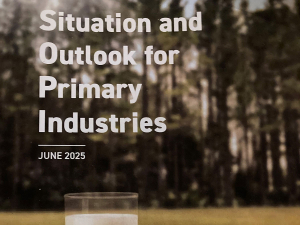NZ Catchment Groups Thrive with ‘Source to Sea’ Approach
The most successful catchment groups in NZ are those that have 'a source to sea' approach.
 According to the latest Situation Outlook for Primary Industries report, all sectors, bar the wine sector, are enjoying rising income.
According to the latest Situation Outlook for Primary Industries report, all sectors, bar the wine sector, are enjoying rising income.
OPINION: Ministry for Primary Industries' situation outlook for primary industries report (SOPI) makes impressive reading.
All sectors, bar the wine sector, are enjoying rising income as global demand for New Zealand's high-quality, safe, and sustainable products remain strong.
The report forecasts food and fibre export revenue to reach a record $59.9 billion in the year to 30 June 2025, rising to a further record $65.9 billion in the year to 30 June 2029.
Dairy export revenue will rise 16% to reach a record $27.0 billion, meat and wool export revenue increasing 8% to $12.3 billion, horticulture export revenue growing by a phenomenal 19% to $8.5 billion and forestry export revenue jumping 9% to $6.3 billion.
Breaking down into smaller hort sectors: apple and pear exports for 2025 are forecast to surpass the $1 billion milestone, driven by increases in export volume, kiwifruit exports are forecast to rise by 36% in the year to 30 June 2025, reaching $3.9 billion, avocado export revenue is forecast to rise 192% to $108 million in the year to 30 June 2025, and cherry exports netted a record export revenue of $124 million, up 35% from the previous season. Vegetable export revenue is forecast to grow 8% this season, reaching $770 million.
The figures reflect the strength and resilience of the people who deliver them.
And what farmers, growers and producers need is the Government's backing. To its credit, the Government has focused on restoring confidence in the sector, lifting on-farm productivity and profitability, and cutting the red tape that's been holding rural New Zealand back.
However, more needs to be done. Land use policies that stifle growth of primary sector businesses and favouring urban development over farming on productive land must change. We've had a decade of policy that has favoured forestry over farming, incentivising planting radiata, particularly for carbon revenue. On top of that, excessive red tape and layers of impractical and poorly consulted-on regulation have strangled farming confidence and investment.
The SOPI report shoes that when our rural communities do well, the whole country benefits. That's why we're making sure our farmers and growers have the tools and support they need to succeed - not just today, but for the long-term prosperity of New Zealand.
The Government must ensure that it's supporting - not stifling - innovation and growth for farmers and growers.
Beef + Lamb NZ (B+LNZ) is calling for significant changes to the Government’s reforms to the Resource Management Act (RMA).
NZPork says the Government needs to strengthen its proposed planning laws to ensure New Zealand's pig farmers can continue to produce pork.
Good news for kiwifruit growers - a record crop with forecast per hectare returns at record levels for all fruit categories for the 2025-26 season.
As guests gathered on what is known as the Speaker's Lawn - a beautifully manicured patch of grass behind the main buildings of Parliament - to mingle and enjoy a lamb chop to celebrate National Lamb Day, the mood was very much upbeat.
Global dairy prices are on a roll, recording a fourth consecutive jump on the Global Dairy Trade (GDT) auction this year.
Booming primary sector exports are helping lift earnings for farm service providers.